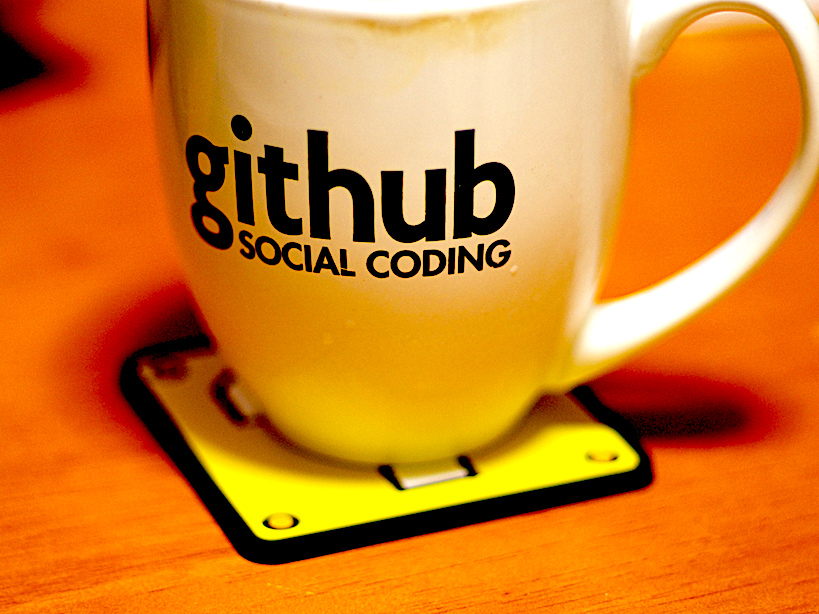 APPS
APPS
 APPS
APPS
 APPS
APPS
The open-source developer community now confronts an acquisition of seismic impact.
Today, Microsoft Corp. announced an agreement to acquire San Francisco-based open-source development community GitHub Inc. for $7.5 billion. Just as Oracle Corp.’s 2009 acquisition of the Sun Microsystems Inc.-developed Java sent shockwaves through the web developer ecosystem, Microsoft’s pending GitHub takeover is causing waves of concern to ripple across the global open-source developer community.
GitHub provides a central code-control repository, issue-tracking environment, collaboration forum and documentation hosting service for open-source developers in every industry, geography and technology. Essentially, Microsoft’s bombshell announcement will place a privately owned service that many developers regard as a quasipublic utility under the control of commercial vendor with which many of them compete.
One would be hard-pressed to name any significant open-source project that doesn’t publish and collaborate through a GitHub repo. GitHub hosts more than 85 million code repositories worldwide. It has users among more than 28 million developers and among 1.8 billion businesses and organizations, both large and small. GitHub stated last fall that it was expecting to book more than $200 million in subscription revenues in 2018, including more than $110 million from companies using its GitHub Enterprise.
Nevertheless, Microsoft’s acquisition may be necessary to secure GitHub’s financial stability going forward. The service has been groping for a path to profitability and has been hunting for a new chief executive for most of the past year.
Pending the customary closing conditions and regulatory review, Microsoft will acquire GitHub for $7.5 billion, which is slightly less than four times GitHub’s most recent valuation following a funding round three years ago. The deal is expected to close by the end of this calendar year, at which time GitHub’s financials will be reported as part of Microsoft’s Intelligent Cloud segment.
In acquiring GitHub, Microsoft is deepening its already considerable commitment to open-source software. The Redmond, Washington-based vendor has been aggressively recruiting open-source developers. It has adopted open-source technologies throughout its solution portfolio. It has donated Visual Studio Code, PowerShell, the Microsoft Edge JavaScript Engine and other code to open-source communities. Recently, Microsoft released its new App Center App in the GitHub marketplace. And last year, it moved its internal development of Windows platforms to the Git version-control system, which was originally created by Linus Torvalds to handle Linux’s decentralized development model.
Microsoft’s commitment to GitHub long predates today’s announcement. Since 2016, the vendor has been the No. 1 contributor to GitHub, having made more than 2 million commits to projects on the site. About 1,300 employees actively push code to 825 repositories on the site. By comparison, Google Inc. has 900 employees contributing to about 1,100 repositories, and Amazon.com Inc. has 134 employees pushing code to 158 top projects. Other tech companies that are big GitHub customers include Apple Inc., Facebook Inc. and IBM Corp.
Microsoft has stated that it will run GitHub independently as an open platform that any developer can plug into and extend. As a self-described “steward” of the GitHub community, Microsoft has committed to allowing developers to be able to use the programming languages, tools and operating systems of their choice for their projects and to deploy their code on any cloud and any device.
There’s every reason to believe that Microsoft will make good on these pledges to be hands-off from GitHub’s open operating model. It’s in the company’s strategic interest to encourage developers to keep creating repositories, posting and sharing code, and otherwise participating in GitHub, so it will probably go slowly with any changes to the community’s structure, tools and policies.
Be that as it may, there is also a strong likelihood that Microsoft, based on its public statements so far, will take the following next steps once it completes its acquisition of GitHub:
Microsoft’s takeover of GitHub may spur competing software and cloud vendors to abandon that site in favor of alternative open-source code repositories, such as GitLab Inc., Atlassian Corp. plc’s Bitbucket and Helix VCS. Already, Wikibon is seeing a renewed push by rival open-source repository site GitLab to help developers migrate away from GitHub. And we’re likely to see competing cloud providers — especially AWS, Google and IBM — either acquire existing GitHub rivals repositories or start up their own open-source repository communities over the next three to six months.
Here’s Microsoft Chief Executive Satya Nadella discussing the acquisition on CNBC today:
And here’s a contrary viewpoint by a developer who has bad feelings about this acquisition:
THANK YOU